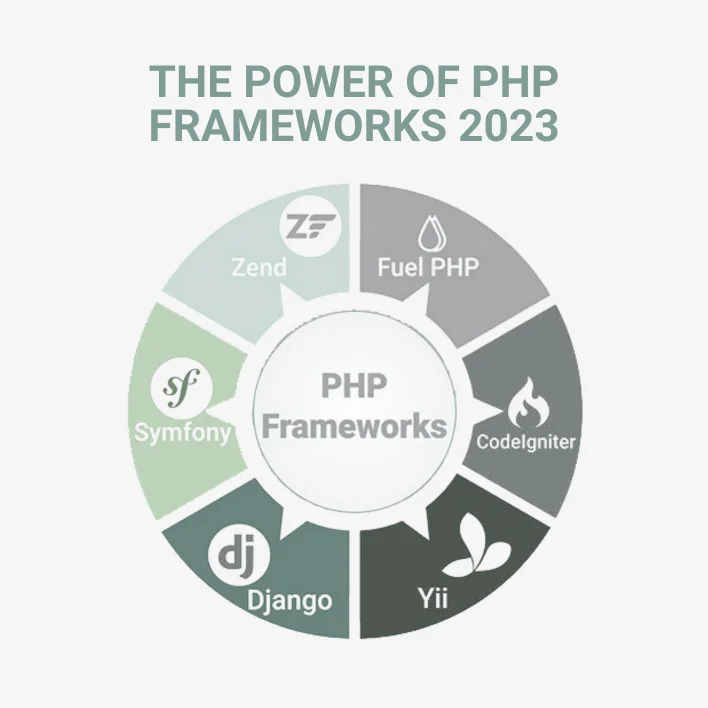The New Era of AI in 2025: From Gemini 3 to Creative AIs
Learn about the best AI tools for 2025, including Nano...
We use cookies for our website to give you the most relevant experience by remembering your preferences. By clicking “accept”, you consent to use of ALL the cookies
This website uses cookies to improve your experience while you navigate through the website. Out of these, the cookies that are categorized as necessary are stored on your browser as they are essential for the working of basic functionalities of the website. We also use third-party cookies that help us analyze and understand how you use this website. These cookies will be stored in your browser only with your consent. You also have the option to opt-out of these cookies. But opting out of some of these cookies may affect your browsing experience.
Necessary cookies are absolutely essential for the website to function properly. These cookies ensure basic functionalities and security features of the website, anonymously.
| Cookie | Duration | Description |
|---|---|---|
| cookielawinfo-checkbox-functional | 11 months | This cookie is set by GDPR Cookie Consent plugin. The cookie is used to store the user consent for the cookies in the category “Analytics”. |
| cookielawinfo-checkbox-functional | 11 months | The cookie is set by GDPR cookie consent to record the user consent for the cookies in the category “Functional”. |
| cookielawinfo-checkbox-necessary | 11 months | This cookie is set by GDPR Cookie Consent plugin. The cookies is used to store the user consent for the cookies in the category “Necessary”. |
| cookielawinfo-checkbox-others | 11 months | This cookie is set by GDPR Cookie Consent plugin. The cookie is used to store the user consent for the cookies in the category “Other. |
| cookielawinfo-checkbox-performance | 11 months | This cookie is set by GDPR Cookie Consent plugin. The cookie is used to store the user consent for the cookies in the category “Performance”. |
| viewed_cookie_policy | 11 months | The cookie is set by the GDPR Cookie Consent plugin and is used to store whether or not user has consented to the use of cookies. It does not store any personal data. |
Functional cookies help to perform certain functionalities like sharing the content of the website on social media platforms, collect feedbacks, and other third-party features.
Performance cookies are used to understand and analyze the key performance indexes of the website which helps in delivering a better user experience for the visitors.
Analytical cookies are used to understand how visitors interact with the website. These cookies help provide information on metrics the number of visitors, bounce rate, traffic source, etc.
Advertisement cookies are used to provide visitors with relevant ads and marketing campaigns. These cookies track visitors across websites and collect information to provide customized ads.
Other uncategorized cookies are those that are being analyzed and have not been classified into a category as yet.
Cyberia Tech, Inc. respects your privacy. This Privacy Policy explains how we collect, use, and share your information. By using our services, you agree to this policy. If any other agreements conflict with this Privacy Policy, the terms of those agreements prevail.
Cyberia Tech complies with the EU-US and Swiss-US Privacy Shield Frameworks for handling personal data from the EEA, UK, and Switzerland. In case of any conflict, the Privacy Shield Principles prevail. Learn more at Privacy Shield. Key Definitions
Information linked to an individual, transferred from the EEA, UK, or Switzerland to the U.S.
Data revealing race, religion, health, sexual orientation, and similar categories.
Effective Date: [ 2026 / 03 / 04 ]
Welcome to The Cyberia Tech ! By accessing or using our website or services, you agree to
comply with and be bound by these Terms of Use and our Privacy Policy. If you do not agree with
these terms, please do not use our Services.
Loading
0 %

Before all PHP-related job openings are filled, here is your final chance to learn about the top frameworks of PHP. Frameworks are a required precondition for development projects, and every developer seeking a career in PHP development must work with numerous or at least one PHP backend framework.
The purpose of utilizing frameworks is to make coding easier and save you time. Once in a while, a framework outperforms its competitors; in this post, we attempted to examine the top PHP frameworks in 2023, with the aim that PHP will gain popularity this year.
Table of Contents
Some may believe that selecting a good framework and learning how to work with it is time-consuming when you can create code from scratch. In truth, certain programming languages have easier syntax, and pure PHP or Python writing may not be difficult.

You may always reuse previously deployed programs and plug-ins while utilizing a framework. Furthermore, you do not waste time on trial and error or training a new employee. Everything will be a lot easier if one already understands how to work with a certain framework, especially in the Agile approach.
You may obtain additional documentation and help for your projects in the frameworks of PHP, making things safer and more convenient. Let’s get started with the list of PHP frameworks.
Every now and again, we hear that PHP will die this year. On the contrary, before attending the PHP funeral, it is advisable to check the popularity of PHP backend frameworks.

You may notice the gleaming frameworks of PHP on websites that produce and track material about web app development. Laravel surpassed Rails to take the #1 rank among backend frameworks at the start of 2018.
It is no surprise that Laravel ranks first among all backend frameworks due to its robust ecosystem and several built-in utilities.

Working with Laravel is a joy because of its well-organized, clear, and extensive documentation, which contains practically everything. Taylor Otwell, the author of Laravel, stated that he was excited to create something from a different viewpoint, which is how Laravel came to be as a framework for a relatively ancient language with great potential.
Laravel’s founders did their best to transform their website into a Google for Laravel’s codes, so that if someone has an issue, all solutions and needs are available on their website. As a result, they created Laracasts, a website that contains outstanding training to “push developers’ skills to the next level,” as they say.
Laravel is focused on producing free tutorials, videos, and documentation that help users and develop their community; as a result, this mindset has helped Laravel become incredibly popular all around the world.
Despite its welcoming environment and smiling look, Laravel is highly stringent about data security. Laravel is an extremely secure framework since it is constantly updated.
Laravel’s excellent community enhanced its demand and provided several job possibilities all around the world. Not to mention that the quick surge in Django and JavaScript popularity had an impact on Laravel, but it is still in great demand. Please Check Cyberia’s post about the laravel framework, if you want to learn more.
According to the developers, Symfony is the second-best PHP framework and the quickest of all. Its community developed rapidly after its initial release in 2005. It, like Laravel, offers excellent documentation and is well-suited to highly scalable applications. Symfony’s main distinction is its modular component system, which is both flexible and organized.
The modular design makes it easier to collaborate with additional coworkers. Symfony is interoperable with SQL and NoSQL databases, and changes to the database do not need changes to the software.
It is the music to the ears of the developers, a framework so easy and delightful that one can master it within a few hours. Symfony uses the MVC (Model-View-Controller) model, which speeds up development and allows components saved in the Model to be reused numerous times.
In general, Symfony is a PHP backend framework that provides a pleasing set of built-in capabilities as well as extrinsic supporting packages that help with writing.
CodeIgniter is a fast, open-source, and MVC-structured PHP backend framework that has risen to the top 5 of all PHP frameworks due to its versatility and simplicity. Its simple learning curve and fast performance make CodeIgniter an appealing alternative for inexperienced developers.

You may be wondering why the CodeIgniter framework is the ideal choice for inexperienced developers, but a user-friendly environment with straightforward usability is crucial for a framework. CodeIgniter provides a valuable feature for its customers to track and debug issues.
The framework PHP Yii is another excellent option for new PHP developers.
The name is derived from the Chinese language, and the framework, like other PHP frameworks, offers extensive documentation. The noteworthy aspect is that you may have a grid view for the Controller, which makes all data really organized.
Yii has the advantage of being compatible with Bootstrap. Bootstrap will provide a framework for prototyping to enhance the dull model of a web or mobile app without the need for complex CSS.
In terms of security, Yii is one of the most dependable PHP frameworks, including an authentication mechanism for joining the framework as well as some additional authorization capabilities.
Yii’s caching technology is cutting-edge, supporting four forms of caching (Data caching, Fragment caching, Page caching, and HTTP caching) to speed up web app processing.
This is a basic and easy-to-use framework that some developers compare to CodeIgniter. It is a framework that uses HMVC (Hierarchical Model-View-Controller), a more advanced form of MVC. FeulPHP’s organized structure is gas that speeds up its engine to be among the fastest PHP frameworks.
The hierarchy offers an additional layer to data set up and goes beyond data organization and modularity. As a result, data reuse will be significantly easier. FuelPHP is notable for more than just data economy; it is also notable for its security.
CakePHP, which was released the same year as Symfony, was unable to compete. It did, however, create a fantastic community and a plethora of GitHub repositories. It is inspired by Ruby on Rails and, like other PHP frameworks, features an MVC structure.
It is a quick and adaptable option for strong apps and scalable projects. The COC (Convention Over Configuration) design, which automates some unneeded and repeated decisions that a developer must make, is the reason for its efficiency. As a result, the development process will be significantly faster.
The frameworks listed above are the top PHP frameworks in 2023. Other frameworks include Phalcon, a web extension written in C, and Zend, which has been turned into Laminas Projects and is extensively used by businesses.
Each framework has its own set of features and benefits that may be applied to a variety of applications. The major reason for adopting a framework while developing a PHP web application is to speed up the development process and save time.
What is framework of PHP and why is used?
Define a PHP framework. Web application development in PHP often takes place within a framework. By supplying libraries for frequently-used functions, PHP frameworks reduce the requirement for developers to create code from scratch.
There are several open-source, tried-and-true MVC frameworks written in PHP. One input point is recommended, and the data is kept in isolation from the display in well-designed applications.
When it comes to PHP, a multitude of frameworks of PHP are available for consideration. Because there are so many PHP backend frameworks, this list does not contain them all. In their fierce competition, each seeks to outperform the other framework.
Consider the Laravel team and their efforts to reach the summit of the PHP framework mountain. Will any of the PHP frameworks in 2023 replace Laravel? Which will take first place this year? The contest is currently ongoing. Comment on the winner’s name, and please contact us if you require any framework-related services.
You Can Get More Information!
